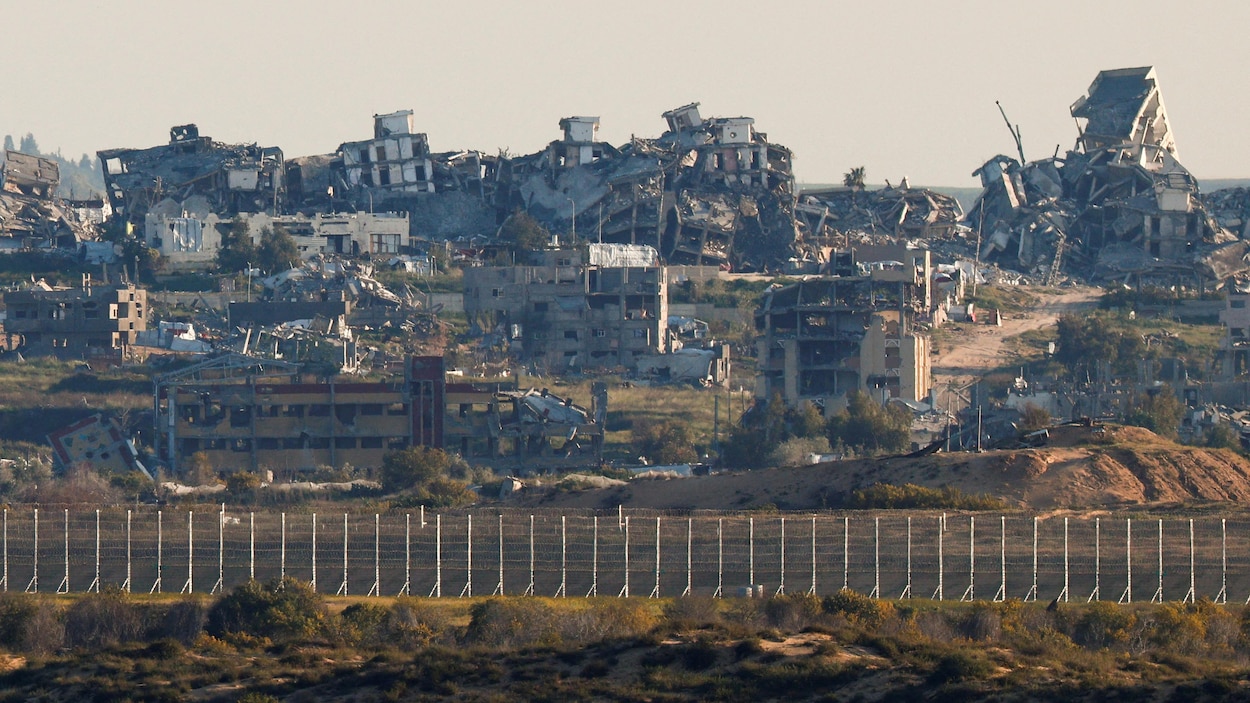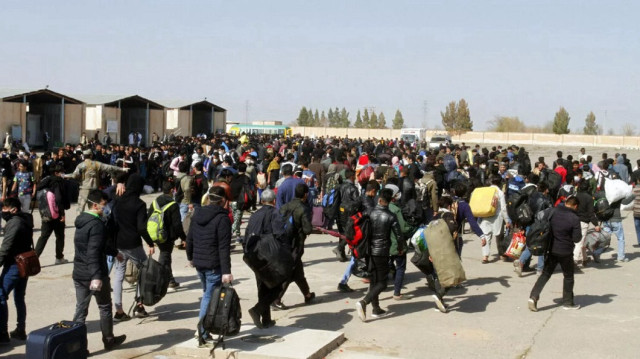Gaza Conflict: Intense Diplomatic Talks and Humanitarian Crisis
As the Gaza conflict continues, diplomatic negotiations intensify amidst calls for ceasefire. Both sides face mounting pressure over hostilities leading to a severe humanitarian crisis.
Published April 18, 2025 - 00:04am

Image recovered from ici.radio-canada.ca
The ongoing conflict in Gaza has escalated into a humanitarian crisis of staggering proportions. Israel has declared a significant portion of Gaza as a security zone, further impacting the region's already fragile conditions. According to the Israeli military, about 30% of Gaza is now within this designated area as they continue operations against alleged terrorist targets. The military offensive that resumed on March 18 has included extensive airstrikes and targeted attacks on figures associated with Hamas and other militant groups. A resulting collapse of humanitarian conditions has been described by the UN as potentially the worst since the onset of the conflict.
The situation has also been marked by significant geopolitical maneuvering. Hamás, for instance, is currently considering a proposal mediated by Qatar and Egypt for a permanent ceasefire. Emirati and Egyptian diplomats have been involved in brokering this proposal, which calls for a truce conditioned upon prisoner exchanges, complete withdrawal from Gaza, and the lifting of the economic blockade. Despite a sense of urgency, the complexity of demands – including Israel's insistence on the disarmament of Palestinian factions and the return of hostages – has made reaching a consensus challenging.
Khalil Al-Hayya, representing Hamas' negotiating team, has publicly refused interim agreements, accusing the Israeli government of using partial agreements as cover for political motives, specifically to prolong military operations in Gaza. Instead, he demands a comprehensive agreement that includes ending the occupation and freeing Palestinian prisoners. Despite the stalemate, there remains a faint hope of concluding a deal that would alleviate the ongoing suffering in Gaza's densely populated areas.
Furthermore, reports of deteriorating prison conditions for Palestinians detained by Israel add layers of complexity to the conflict. Notable is the plight of Dr. Hussam Abu Safiya, a prominent medical figure in Gaza, who has been reportedly held under severe conditions. His case highlights the broader issue of health professionals and civilians in conflict zones facing detention under accusations of terrorism linkages.
Domestically, Israeli Prime Minister Benjamin Netanyahu is facing criticism from various quarters for his handling of the conflict. He is accused of leveraging the situation to bolster his political standing, with critics arguing that the ongoing hostilities fulfill a personal political agenda rather than serving a broader security purpose. The political calculus on both sides remains a significant obstacle to peace, with Israel's conditions for disarmament and Hamas's staunch resistance continuing to impede diplomatic progress.
Across diplomatic tables in Cairo and elsewhere, efforts continue with the intention of halting the devastating effects of war in Gaza. However, as both sides accuse each other of breaching prior agreements, the path to lasting peace remains fraught with challenges. The international community watches with growing concern as humanitarian needs soar. The failure to reach a meaningful resolution raises alarm over potential further escalation, which would likely exacerbate the hostilities' already dire humanitarian impact.






